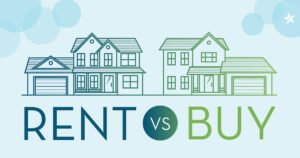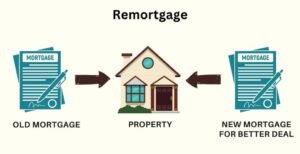
Buying a property can feel like a distant dream, especially with rising deposit requirements. But fear not, there are options like the Shared Ownership scheme that can help you get your foot on the property ladder. Let’s break down what it is and see if it’s the right fit for you.
What is Shared Ownership? Sharing Your Way Onto the Property Ladder
Imagine buying a slice of your dream home instead of the whole cake. That’s the basic idea behind Shared Ownership. You purchase a share of the property (usually between 10% and 75%) from a housing association, a non-profit organisation that provides affordable housing. You’ll then pay rent on the remaining share you don’t own.
Here’s how it works:
Smaller Deposit: A big advantage of Shared Ownership is the lower deposit needed compared to buying a whole property. You typically only need around 5-10% of the share you’re purchasing.
Monthly Costs: You’ll have two main monthly payments: a mortgage on the share you own and a rent on the remaining share owned by the housing association. The rent is usually lower than typical market rent.
Staircasing: As you build your savings, you can gradually buy additional shares in the property (known as staircasing). This increases your ownership percentage and reduces the rent you pay.
Who Qualifies for Shared Ownership? Let’s See if It’s Your Key
Shared Ownership can be a fantastic option for first-time buyers who might struggle to afford a full deposit on a property. Here are some general eligibility requirements:
- Income Limits: Your household income typically needs to be below a certain threshold (around £80,000 per year or £90,000 in London).
- Unable to Afford a Full Purchase: You should demonstrate that you can’t afford to buy a similar property on the open market.
- Good Credit History: A healthy credit score shows lenders you’re a reliable borrower.
One of the following must also be true:
- You’re a first-time buyer
- You used to own a home but cannot afford to buy one now
- You’re forming a new household – for example, after a relationship breakdown
- You’re an existing shared owner, and you want to move
- You own a home and want to move but cannot afford a new home that meets your needs
For some homes you may have to show that you live in, work in, or have a connection to the area where you want to buy the home.
Is Shared Ownership Right for You?
There’s no one-size-fits-all answer. Here are some things to consider:
Long-Term Commitment: Shared Ownership is a long-term commitment, so make sure you’re comfortable living in the property for a while. The lower barrier to entry might seem appealing, but you should take the time to consider the longer term implications to see if it is right for you.
Restrictions: You may have limitations on selling your share or making certain modifications to the property. This might not be what you’re thinking about upfront, but it is important to be aware of some of the practical limitations that may apply. Check with the housing association beforehand to make sure you understand all applicable limitations, to avoid being in a difficult situation at a later stage.
Future Plans: If you plan to move frequently, Shared Ownership might not be the best option due to selling restrictions. Again, do your due diligence upfront to ensure there are no nasty surprises that hit you later down the line.
Thinking Shared Ownership Might Be Your Path? We Can Help Guide You There!
At The Invested Mortgage Broker, we can help you navigate the Shared Ownership process. We can assess your eligibility, explain the different options available, and help you secure a suitable mortgage to achieve tour shared ownership goals. We’ll also guide you through the process from start to finish so you’re able to make your property dreams a reality!
Shared Ownership can be a great way for some to achieve the dream of homeownership. Let’s chat and see if it’s the right key to unlock your property journey. Contact us today for a free, no-obligation consultation!






